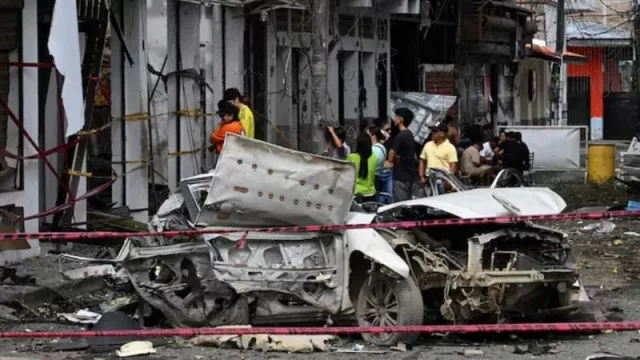This Tuesday's terror spree across Cali and other regions marks a disturbing return to the darkest days of extreme violence.
What does this resurgence of leftist violence and terrorism mean for Colombia’s economy and stability?
Answering that question requires a deep analysis of the current context, the dynamics of the armed conflict, and the implications for investors, entrepreneurs, and political leaders operating in the region.
Miami Micro-Notes & Strategic Tips
Unprecedented Day of Violence:
19 attacks in Cali, Cauca, Valle del Cauca, and surrounding zones—using explosives, drones, and vehicle bombs—shaking the country to its core.
Impact on Security & Economy:
Violence directly affects foreign investment, business operations, and perceptions of stability—potentially deterring economic growth in key sectors like mining, infrastructure, and agriculture.
Disguised Dissidents in Action:
Groups like the FARC dissidents, led by Iván Mordisco, are actively seeking to destabilize, controlling drug trafficking routes and illegal mining, while fighting to maintain territorial influence.
Government Response & Country Risk:
The government has ramped up military deployments, but the persistent insecurity continues to undermine trust in Colombia’s market and political stability.
Key Data & Current Context
10 Dead, Dozens Injured:
Including civilians, police, and minors—victims of a brutal pattern of bombings, drone strikes, and explosive devices.
Cali, the New Epicenter of Terror:
Structural damage and a renewed sense of fear evoke memories of Colombia’s dark past during Pablo Escobar’s narcoterror era.
Military Operations Underway:
The government confirms that hundreds of U.S. troops are strategically deployed in Colombia to contain the threat—highlighting ongoing international cooperation in the fight against drug trafficking and organized crime.
The Role of Dissidents:
Led by Iván Mordisco, residual armed factions seek revenge for the killing of one of their commanders, alias Mayimbú, and aim to strengthen territorial control through indiscriminate attacks.
Strategic Analysis: What Does This Escalation Mean for Business & Investment?
From a country risk perspective, this dark chapter exposes Colombia’s fragile stability, threatening its economic recovery and scaring off foreign investors in critical sectors such as mining, infrastructure, and agriculture.
While military deployments are necessary, they aren’t enough to guarantee lasting peace. Today’s scenario demands constant risk assessment and resilience planning from entrepreneurs and policymakers alike—preparing for possible future episodes of violence.
The Backstory: Deeper Roots of the Resurgence
This spike in violence echoes Colombia’s darkest years—when armed groups used terror and bombings to maintain social and economic control across regions. The presence of dissident factions, along with other armed entities, reflects a fierce struggle to preserve influence amid a weakened state and expanding illicit activities like drug trafficking and illegal mining.
Lessons for Colombia and Its International Partners
The return of violence, comparable in intensity to the 80s and 90s, underscores the urgent need to strengthen security policies, invest in intelligence, and bolster international cooperation.
For the business community, diversification of risk, strategic alliances, and transparent stakeholder communication are essential to navigating this volatile landscape.
Meanwhile, the Colombian people and their leaders face the challenge of rebuilding trust and moving toward a durable peace—one that allows the country to regain its momentum of growth and stability.
The key question remains: Is Colombia prepared to confront these episodes and turn adversity into an opportunity for institutional and economic reconfiguration?
Suscribete:
-
Subscribe for free to receive the most strategic, agile, and valuable insights at: https://infonegocios.miami/suscribite-al-newsletter
Infonegocios NETWORK: 4.5 million Anglo-Latinos united by a passion for business.
Contact Infonegocios MIAMI:
Read Smart, Be Smarter!












Tu opinión enriquece este artículo: